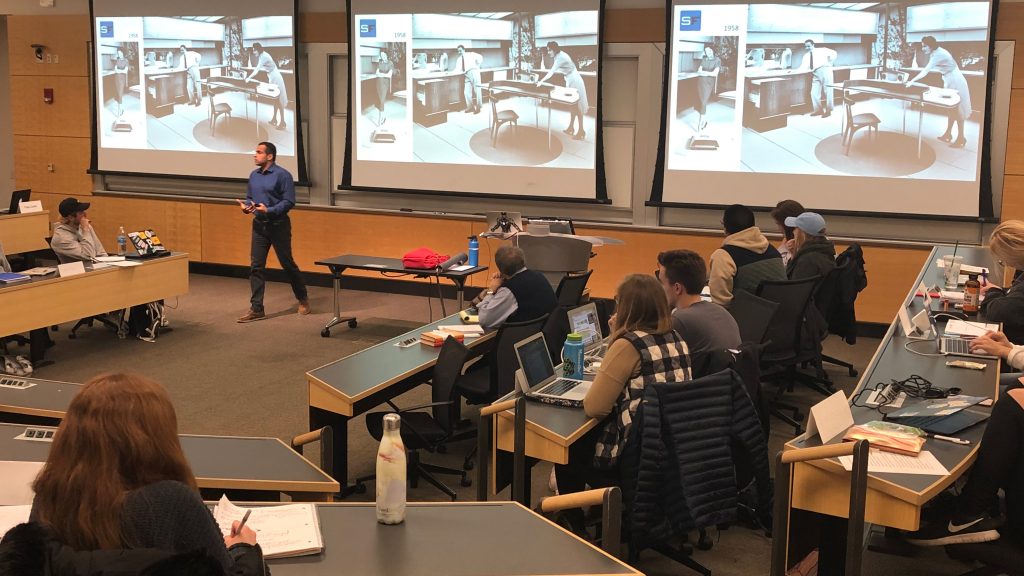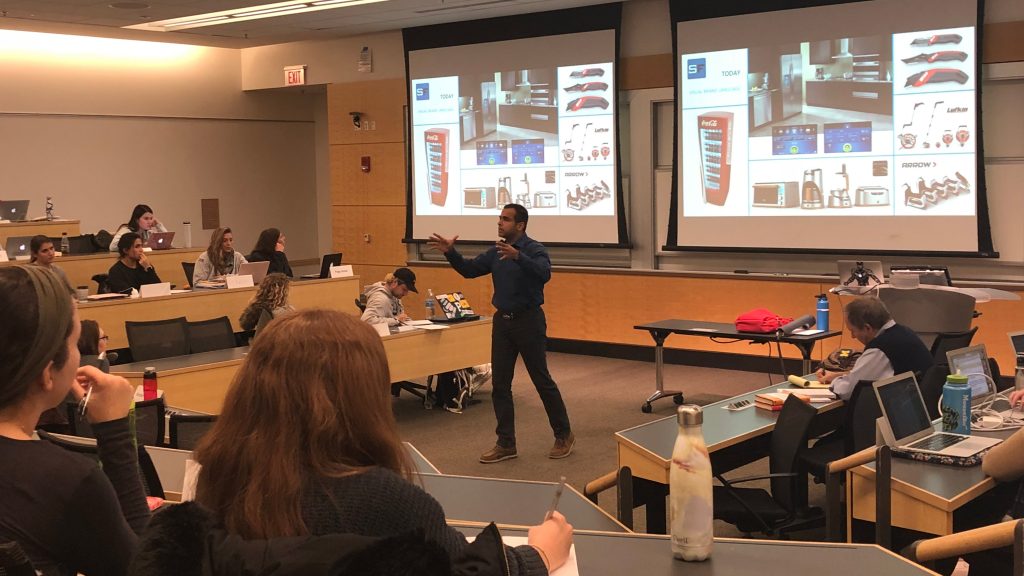
This past week, Jeevak was invited to speak on the nature and practice of Industrial Design to a marketing class at University of Michigan’s Ross School of Business. The class is taught by Tim ODay, former manager of Kellogg’s USA account and Morgan Stanley Global Business for Leo Burnett Accounting service. Ross school of business has a prestigious history dating back to 1924. It is in the national top ten MBA programs as well as in the global top ten for research faculty.
As we arrived halfway through the evening session, the class was in the process of critiquing two opposing marketing campaigns set forth by students arguing for and against consuming yogurt products. We listened in as the students discussed which persuasive strategies and marketing tools were most effective in both arguments, and for a couple of hours, we had the opportunity to be flies on the wall as these students formed and sharpened their sensibilities in marketing, critical thinking, and product development. It makes one reflect on the seemingly mundane routine of weekly classes, homework assignments, and everyday life of school that, nevertheless, forms a crucial foundation of skills and knowledge on which one builds for the rest of their life.
As anyone who has ever experienced them knows, long evening classes can be killer – especially when that’s all that’s standing between you and either dinner or bed or much needed study time. And as the time drew near for Jeevak’s portion, we feared attention spans would be running short. As industrial designers, however, we have the advantage of novelty on our side when it comes to presenting who we are and what we do. Even though it directly affects so much of the daily human experience, few people really understand what industrial design is. For many of these students, this was their first exposure to our discipline, and to Sundberg-Ferar. They were all soon captivated. Pens scribbled away, computer keys were tapping, and Jeevak owned the lecture theater from the back row down to the dais.

Jeevak spoke on “Barriers to Innovation” – reasons why companies and individuals fail to truly innovate in their products and services, and how Sundberg-Ferar overcomes these barriers. Some of these reasons go all the way back to fundamental evolutionary principles of human behavior. Yet over our 84-year history, we have seen how they can become pitfalls in the product development process, and how to replace these pitfalls with cultivated habits and mindsets that encourage innovation for you and your company.
The students at Ross School of Business were wonderfully receptive to Jeevak’s presentation. Throughout the evening, there were many pauses for dialogue between him and the students. They met our passion with their own curiosity and great questions. We thoroughly enjoyed the opportunity to share our industrial design experience, and engage with the minds of those who will shape the future at one of the world’s most prestigious business schools.